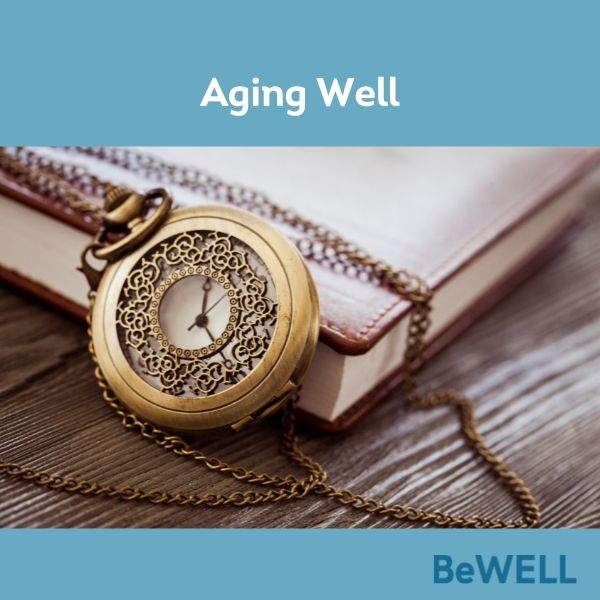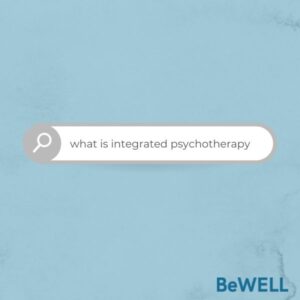When challenged to write the first blog of the new year and also to host the first wellness talk of the new year – where do I start? Resolutions vs Intentions, Dry January, Weight Loss, Fitness Goals, Winter Blues, yet another Covid Strain – there are so many things on people’s minds in the new year, it is hard to know where to begin.
We are all, whether conscious of it or not, setting some kind of intention as the new year rings in. Also, we are marking time in some way as we move from one year to the next. Each January will mark another year. We look back on what we have done in our lives and where we are and we will toward the future and what we would like to accomplish. No matter where we are on the spectrum of life we have a drive for moving forward.
As the decades pass we look at life in different ways. What we know for sure is at some point there will be more time behind us than in front of us and we often look towards the future and for ways to live more fully.
This blog will be a generalized outlook from decade to decade. At any point a traumatic event could shake up our experiences and change the trajectory. As I started to outline this essay I started to wonder at what ages do we begin to use the terminology – Aging – anyway? Because from the moment we are born we are aging.
Erik Erikson, the father of identity theory and one of the first theorists to look at the entire life cycle and it’s varying stages of development, breaks out the stages of life in 8 sections. – During the early parts of our life the first 4 stages – Infancy, Toddler, Early School Age and Adolescence – this is when we develop who we are and during these stages we have a feeling of immortality. Remember being a teenager and thinking that you could do anything? That 30 was old? That you had nothing but time? During these formative years, we learn how to be autonomous, understand we are separate from our parents, and navigate peer groups. At each stage we develop skills that bring us to adulthood.
According to Erikson – Young Adulthood starts at 18 and runs through 40. It is during this stage that we start to become more aware of our age and the responsibilities of being an adult. Although technically we are still adolescents until we are at the ages of 28-30 when our brains are fully developed, regardless we are faced with adulthood. For the first time in our lives we are not in a rush to be older. We no longer need to borrow someone’s id to get into a bar. We are old enough to vote and are considered ready to leave home and start college and by society’s standards ready to be on our own.
During this period (18-40) we make major decisions about our lives – some conscious or some not. We partner, start families or think about starting them, start careers, purchase real estate, all these are major adult decisions. Not everyone follows this path directly but we are all influenced by it. During this period as we move away from our adolescents and we watch our parents age we become more aware of our mortality. During each decade we also go through physical and psychological changes that we do not always say out loud.
I asked a few women to help me identify what stressors look like in their lives – each a representative of a particular decade:
Divya, as late twenty something, newly married and focused on her career, identifies one of the biggest stressors of her twenties as becoming more independent. She also identifies this time as a period when you begin to notice that you outgrow friendships and relationships with parents start to change.
She also notes that during your twenties when you “on your own” and without the structure of school to guide your time and also give you a clear path to next steps – you are asked to rely on your own drive and grit create your path and this becomes more clear in your twenties as the responsibilities of adulthood start to creep in
Arianna a mid 30’s woman with a career and a life partner identifies one her major stressors is finding stability. The hectic period of her 20’ where she defined a role for herself in her relationships and her career – now she is looking to build a solid stable foundation to move into middle adulthood.
Another major stressor during this period is starting a family and how it will affect all the other decisions we have set into motion. After all those years of trying not to get pregnant now for some of us we are consumed with when we will get pregnant. Who will be my partner? How will it change the course of our careers, where will we live, who will we be with children – what if I don’t have children what will society think? This is a subject all on its own however when we are in this young adult period this may be one of the most challenging obstacles that we face. The identity shift that happens when we become a parent or if we do not.
Equally important, or so we are led to believe is that we identify who we are in our careers.
Which can and often does have an impact on how we feel about ourselves. At some point we may (hopefully) realize that it really doesn’t matter what we do for work. We get caught up in the money and the conversations around money when it comes to careers. Do not misunderstand me here – I love money and know its importance when it comes to having a lifestyle that is both sustainable and enjoyable. However, oftentimes we are tricked into thinking we need more than we have.
40-65 Erikson identifies as Middle Adulthood. Personally I am smack in the middle of this period and it is quite an interesting one. Erikson suggests that during this one develops generativity or if not they become stagnant or self-absorbed. Generativity during this stage is when you begin to mentor and give back the knowledge and wisdom that you have gained over the years. This is what keeps you full. This is the psychological fulfillment that we need.
Other trends in this time period is empty nest, menopause, a midlife crisis. We become fully aware of our mortality in the middle of this period and there is a shift in energy. We still move forward but with a different purpose and intention. We are also faced with society’s idea of the ideal. Youthfulness is a major topic throughout adulthood with every age group. We are a youth driven society and we are all affected by the media’s version of youthfulness and the pressures to look and appear young.
When I asked Ednesha, 43, a married and successful entrepreneur about her fears of aging she said: “My biggest fear is that one day I won’t look youthful. I feel youthful and I try my best to prioritize play and not take life too seriously but I am afraid of looking my age or older.
She goes on to explore: “I wish I had been told to cherish getting older and wiser but I believe our society prioritizes being young, looking young and staying young.” She continues noting that she feels that society is telling her to be 23 forever, “I want to be comfortable with my age and one day looking my age without feeling like I have less value in society.”
| After meeting with Ednesha, I was interested in exploring the end of the 40’s and if the stressors look different. Although not explored in Erikson’s theory, most women will experience menopause at the end of their 40’s early 50’s and with this physical, hormonal shift comes different emotional states.
Liz, 48 , divorced and the mother to an amazing 10 year old is looking at the same question about aging from a different lens. When asked what her biggest fear is about aging she directly and vulnerably answers the question “My biggest fear is isolation and being alone.” She wishes that she saw more examples of positive co-living experiences besides the Golden Girls. We start to see the stark contrast as we move toward the second half of our middle adult period from our early adulthood. In early adulthood, Divya is navigating her independence and in later middle adulthood the questions and fears shift to community and concern for loneliness. Each of these women is also an active mentor in her community and have expressed the desire to share their wisdom with a younger generation. Ednesha created a program for Black Women @blackwomenbewhole, where she not only shares her expertise and sets an example of living well, she is able to give back in multiple ways through direct experiences and content. Liz’s work similarly has a focus on not only individual wellness but has a running theme about being well and its impact on your community commitment. During this phase of our lives we hope to create something that leaves a legacy. However, aging and isolation are real fears, like Liz, many of us have a fear of being alone. Menopause marks the end of “something” as woman but with every ending there is a new beginning. As we move into our 50’s and closer to the next phase, which according to Erikson begins at 65. In her mid 50’s, Mel, married, successful yoga teacher, says her biggest stressor is managing her aging parents and making healthcare decisions on their behalf. Her biggest fear about aging mirrors Liz’s. Mel says: “ Honestly, my biggest fear is dying alone. Which I realize isn’t rational because I have a younger and very healthy husband , Two siblings who both have children, and many close friends. I think the fact that I didn’t have children scares me…and what really puts the nail in that coffin (no pun intended) is that me and my siblings are a huge part of my parents’ aging and their care. I think I’ve convinced myself that without children of my own, no one will do for me what I’ve done for my parents- which is, gone above and beyond to help them.” Mel’s fears about not having children bring us to “preparing for the 4th quarter” (which is my mother’s term for the later part of your life. During the later adulthood we want to enter this time having resolved regret. Not having children, finding a partner, whatever other societal pressures that may restrict us from living fully in the 4th quarter. Staying active and also being kind to ourselves as we reflect back on our lives. We have the opportunity to set ourselves up during each decade to prepare for this quarter. With each disappointment, each adult milestone that we reach or do not reach we need to find ways of cultivating compassion for our process. Finding self acceptance and understanding. As we examine adult life stages we are given the opportunity to reconnect with where we are and make some changes if we need to in our next steps. Setting ourselves on a path to age with grace and dignity. |
|||



